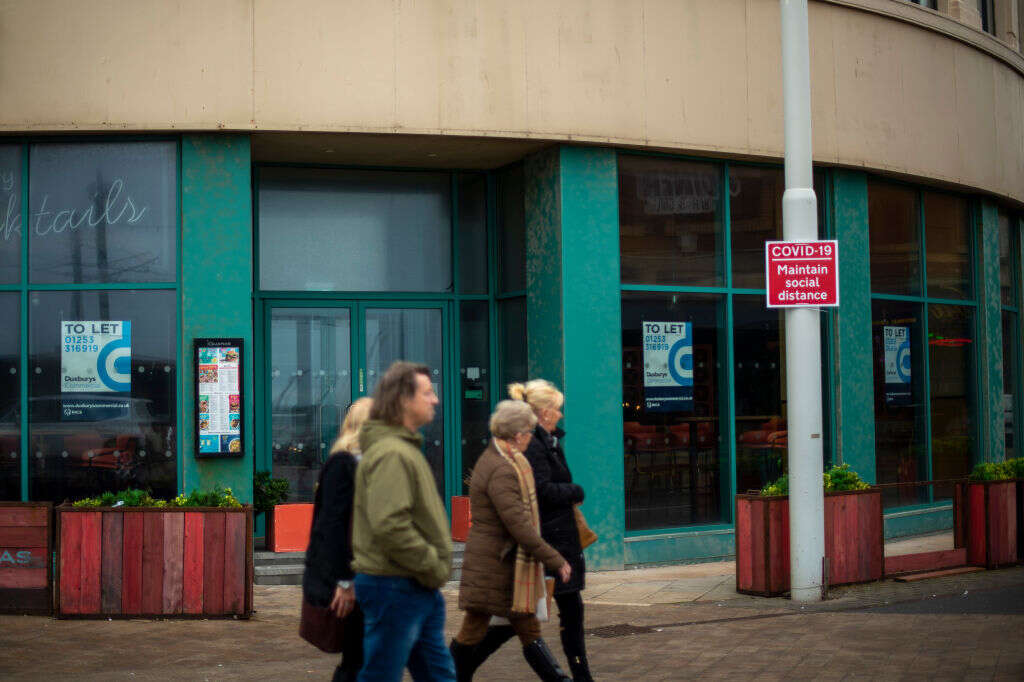

Covid-19 has made it four times harder to “level up” England’s north and Midlands regions, and risks lowering living standards in some previously better-off towns and cities in England’s south, according to new research by Centre for Cities.
The concept of levelling up dates back to 2019, when Prime Minister Boris Johnson promised to address regional inequality and improve living standards in underperforming and left-behind towns and cities in the UK.
In its annual study of the UK’s major urban areas, released this week, the think tank found that the economic impact of the pandemic has not followed the country’s traditional north-south patterns, instead drastically increasing the number of people claiming unemployment-related benefits all over the UK. According to the report’s authors, this has created a new challenge in the south and added to the economic difficulties in many parts of the north and Midlands.
In the South, among the worst-affected are cities and towns that depend on aviation, retail and hospitality. While few industries have been spared the pandemic’s collapse in demand, these sectors have been hit especially hard.
“Alongside the places that need levelling up, there are now a number of cities that risk being ‘levelled down’, in particular Slough, Luton, Crawley and London,” says Elena Magrini, report author and senior analyst at Centre for Cities. “These are among the top 15 places [in the UK] that have been the hardest hit by Covid, and it’s quite unusual because normally they are among the better-performing places in the country.”
London has been badly battered in the short term, but the capital should be in a better position to recover once social distancing restrictions are lifted, Magrini says.
“The type of crisis that has been created by Covid-19 is mostly a local-services crisis,” she says. “Once restrictions are lifted, we would expect things to bounce back quite quickly.”
Economic recovery is likely to be more challenging for Slough and Crawley, which have significant shares of workers employed in the airline industry. The same is true of previously struggling cities in the Midlands and north. This echoes an analysis last year by City Monitor of the US, which found that while that country’s larger, more prosperous cities were heavily impacted by Covid, their longer-term outlook was more positive than that of tourist towns and poorer metros that were struggling before the pandemic.
“The economic strength of cities in the north and Midlands was weaker to begin with, so wages tended to be lower in these places, there was less money circulating in the economy, and there were already more people unemployed,” says Magrini. “These things are likely to still be there, and the pandemic has actually exacerbated them.”
The need to level the playing field
The scale of the challenge was stark even before the pandemic arrived.
In March 2020, almost half of the UK residents seeking some form of unemployment assistance lived in the north and Midlands, which are home to 39% of the country’s working-age population. In contrast, less than a third of claimants lived in London, the south-east and the east, which together account for 37% of the UK’s working-age population.
Birmingham and Blackpool – which prior to 2020 had some of the highest unemployment rates in the UK – are among the 15 cities the report found to be facing the steepest road to recovery. Even bouncing back to where they were before the pandemic will not be sufficient, according to the report’s authors.
While it’s not surprising that the pandemic has derailed the government’s promise to level up, once the contagion is under control, the government must put regional inequalities back on the agenda, says Magrini.
“The government has been firefighting,” she says. “There was clearly a very big health crisis that the government needed to manage, so that’s the priority, and it’s understandable.
“But if we want to recover, as soon as a vaccine is in place and the categories at risk have been covered, then the focus needs to shift back on the domestic agenda because otherwise the effects of the pandemic, compounded with the poor economic performance of certain parts of the country in the last few years, will make things even more difficult in terms of bouncing back in the future.”






